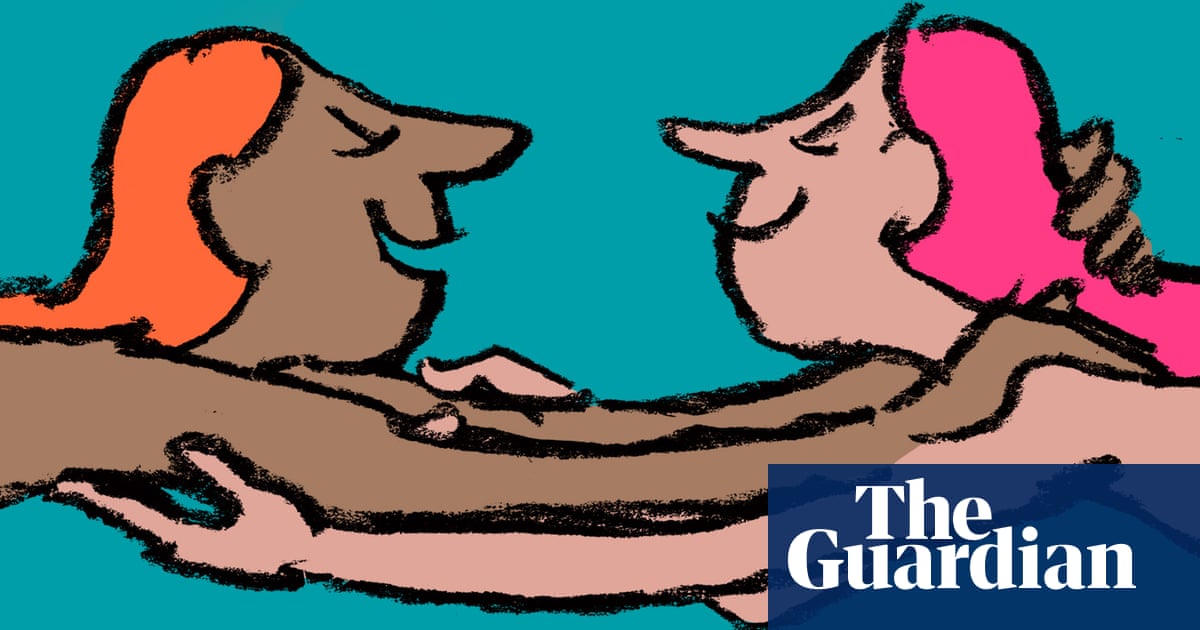
Dennis Kelly, writer/adapter
The Royal Shakespeare Company had this theory that a lot of musicals are quite bad because no one bothers with the story. The script is often just glue for the songs. So they wanted a playwright to do the story first. I didn’t know anything about musicals but fancied getting stuck in. Now, it feels like Matilda was this golden ticket, but at the time it was just a Christmas show. Roald Dahl stories had been done on stage for years but it wasn’t like doing a Dahl was a recipe for success.
What was relatively easy about adapting Dahl is that the tone is so strong and colourful, you don’t need to think about it. You do have to make it your own though. He was a genius at writing these crazy kids’ books, but he wasn’t a playwright. You’ve got to do a lot to make it work on stage.
We needed a composer. The director, Matthew Warchus, knew he’d really found someone in Tim Minchin. I went to see his solo show and was moved by his song White Wine in the Sun. We had a chat and really got on, but there were definitely times when we struggled with each other. His job was the songs, mine was the words and story. Sometimes you have different opinions about how those things work together, but it was always a laugh. Tim is not very sentimental but he’s got a lot of heart. I hate it when musicals brazenly ask you to feel something, like: we want you to be sad now. Tim never does that. His songs are open and honest.
At first, I had imagined adults would play the children. There was one workshop where Matilda was played by a puppet, another where she was a child and everyone else adults. It was Tim who was very keen on casting kids. I had also imagined Miss Trunchbull, the headmistress, would be played by a woman. My worry about a man was that it might be a bit pantomime, so when the story gets to a dark place you wouldn’t believe in the character. But Bertie Carvel’s performance was incredible. He approached it like a method actor and lost himself in it. We never sent it up – Bertie would turn around and you’d get a gasp from the audience as they think: “Oh, it’s a man!” Then you forget that and we get on with the story.
Schoolboy Bruce Bogtrotter’s big chocolatey burp became very important. We had all these ideas about how to do it, like using a big balloon or a bubble, but in the end we just had a kid do a burping face over a simple sound and light effect. A low rent but extremely theatrical moment. And that’s what I love about Matilda – it’s rough and ready theatre but done really well.
Tim Minchin, composer/lyricist
When the RSC asked me if I’d heard of Roald Dahl’s Matilda, and if I’d ever thought of writing music for theatre, I was like: “Are you kidding me?” Years earlier, I’d written to the Dahls to ask if I could turn it into a musical. But I almost said no. I thought: “I’m a rock star now and I don’t need to go back to writing children’s theatre.” But I looked up Matthew Warchus, who was going to direct it – and the dude had won Tony awards. In our first meeting, I still lectured him about how he wasn’t allowed to fuck it up because I’m a Dahl head and not very into musicals. It had to be dark and funny, not a Disney thing.
I loved Dennis Kelly’s script. I made flow charts with different colours for solos and choruses, another showing whether they’re ballads or upbeat, another with different colours for dance. So there was a structure mapped out. Then I went away and wrote When I Grow Up first. I made Matthew and Dennis listen to it on headphones at the Groucho Club in London. Matthew later told me he’d been worried because it’s like a pop song, a bit off-brief.
The script deadline coincided with the birth of my second kid, and my daughter was two at the time, so I was very much in that head space of childhood and sensitive to how innocent kids are. In six weeks I wrote 10 songs, but Matilda herself didn’t have any. Her schoolmate Hortensia was a very strong character in the script: she is the rebel and Matilda is shy. I thought maybe Matilda doesn’t sing and that’s what’s amazing – this world sings around her. Then we realised: it’s a fricking musical, the protagonist needs to sing! Matthew and Dennis broke my heart when they decided to kill Hortensia. I fought it, but they were right. So Matilda gets her rebellious spirit and I wrote Naughty for her, using the structure of When I Grow Up. Harmonically, those songs are the same.
In a musical, in the second act, there’s often an “11 o’clock number” where the protagonist sings a big tearjerker. But Matilda isn’t that kind of person. Instead she sings another number, Quiet, the hardest song to write and a counterpoint to Loud in the first half. It’s difficult to be proud of your own work – you hate your own voice and your own face. But I’m proud of Matilda and I love the people who helped me create it. Musical theatre is a big business but this is a show that was made uncynically. I wrote it from a point of passion and innocence.












